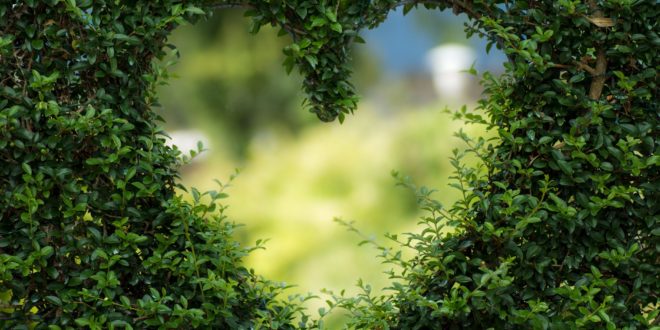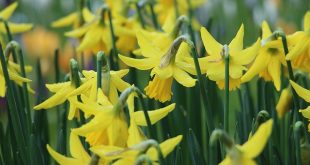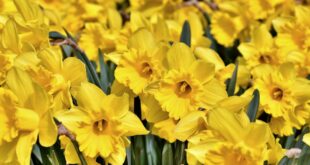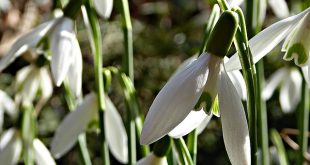- A ground-breaking study reveals the more ‘doses’ of gardening you get, the better your wellbeing
- Daily gardening has the same impact on wellbeing as regular vigorous exercise such as cycling or running
- Gardening just 2-3 times a week also leads to better wellbeing and lower stress levels
- National Gardening Week (April 26 – May 2) starts today and the RHS is calling on the nation to get their daily dose of ‘Vitamin G’
As National Gardening Week starts today, the RHS releases new research* that reveals a significant association between gardening more frequently and improvements in wellbeing, perceived stress and physical activity.
The study, published in the journal Cities, surveyed more than 6000 people and results indicate that those who garden every day have wellbeing scores 6.6% higher and stress levels 4.2% lower than people who don’t garden at all.
RHS Wellbeing Fellow and lead author, Dr Lauriane Chalmin-Pui says; “This is the first time the ‘dose response’ to gardening has been tested and the evidence overwhelmingly suggests that the more frequently you garden – the greater the health benefits.
“In fact gardening every day has the same positive impact on wellbeing than undertaking regular, vigorous exercise like cycling or running.**
“When gardening, our brains are pleasantly distracted by nature around us. This shifts our focus away from ourselves and our stresses, thereby restoring our minds and reducing negative feelings.”
Respondents who gardened 2-3 times a week had a 4.1% higher wellbeing score and 2.4% lower stress levels compared to people who don’t garden at all. However, gardening fewer than 3 times a month has less of a positive impact.
The study conducted by the RHS in collaboration with the University of Sheffield and the University of Virginia found that more frequent gardening was also linked with greater physical activity supporting the notion that gardening is good for both body and mind.
Dr Chalmin-Pui adds; “Gardening is like effortless exercise because it doesn’t feel as strenuous as going to the gym, for example, but we can expend similar amounts of energy.
“Most people say they garden for pleasure and enjoyment so the likelihood of getting hooked to gardening is also high and the good news is that from a mental health perspective – you can’t ‘over-dose’ on gardening!
“We hope all the millions of new gardeners will be getting their daily doses of gardening this week and feeling all the better for it.”
‘Pleasure and enjoyment’ is the reason why 6 in 10 people garden. Nearly a third say they garden for the ‘health benefits’; 1 in 5 say ‘wellbeing’ is the reason they garden and 15% say it makes them feel calm and relaxed.
Co-author, Dr Ross Cameron of the University of Sheffield, commented; “This research provides further empirical data to support the value of gardening and gardens for mental restoration and ‘promoting a calmness of mind’.
“We also found a greater proportion of plants in the garden was linked with greater wellbeing, suggesting even just viewing ‘green’ gardens may help.”
It was not just able gardeners who benefited. Those with health problems stated gardening eased episodes of depression (13%), boosted energy levels (12%) and reduced stress (16%).
The report adds to a mountain of evidence showing the positive health benefits of gardening. One study found that calories burnt from 30 minutes of gardening is comparable to playing a social game badminton, volleyball or practicing yoga.***
Last year, an RHS science paper found that adding a few plants to a bare front garden can make you feel happier, more relaxed and has the same impact as eight mindfulness sessions every week.****
Throughout National Gardening Week, the RHS will be sharing tips and ideas for people to get their dose of ‘vitamin G’ .To get involved and for ideas to get your daily dose visit the RHS website.
On June 24, RHS Hilltop – The Home of Gardening Science will open to the public at RHS Garden Wisley. The Wellbeing Garden will be is one of three new gardens surrounding the building; it will be a ‘living experimental’ garden that will help the RHS create the first evidence-based blueprint for a wellbeing garden.
 Gardeners Club The Gardeners Club is a free to join online club for everyone with an interest in gardening and gardens.
Gardeners Club The Gardeners Club is a free to join online club for everyone with an interest in gardening and gardens.






